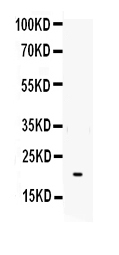Interleukin 6 is an interleukin. It acts as both a proinflammatory cytokine (IL-6) and an anti-inflammatory myokine. It is encoded in the HTML6 human genome. Additionally, osteoblasts produce IL-6 to promote osteoclast creation. Smooth muscles produce IL-6 in many blood vessels. IL-6 plays an anti-inflammatory role by inhibiting TNF alpha, IL-1, and activating IL-10.
Early evidence suggests that Anti-Interleukin IL-6 antibody could be used as an inflammatory indicator in severe COVID-19 infections with poor prognosis. This is within the larger context of the wider coronavirus epidemic. Interleukin 6 is a 26 kD multifunctional protein that was originally discovered in the medium RNA-stimulated fibroblastoid cell.

IL-6 is implicated in cell injury and infection responses. It may also play a role in the regulation of the acute phase response. Fibroblasts, activated cells, activated macrophages, activated monocytes, and activated T cells are all known to produce IL-6.
IL-6 can affect a wide range of cells, including T cells, B and hepatocytes, as well as myeloid progenitor cell lines, T cells, B, and T cells. In the proliferation of T lymphocytes, IL-6 may interact with IL-2. IL-6 increases the proliferative effects of IL-3 upon multipotential hematopoietic stem cells.
IL-6 is a key factor in plasma cell differentiation and is a potent growth agent for plasmacytoma as well as myeloma. IL-6 can be used as a culture supplement to produce high numbers of hybridomas that are antibody-producing. Primarily secreted at sites of chronic and acute inflammation, IL-6 induces a transcriptional inflammatory reaction through interleukin 6 alpha.
